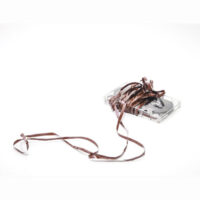Unraveling The Distinctions Between Premises Liability And Negligent Security

When it comes to personal injury law in the state of Maryland, there are many cases that revolve around the concept of premises liability, a legal doctrine that can hold property owners responsible for accident injuries that occur on their premises. But it is important to note that when inadequate security measures lead to harm, the focus shifts to negligent security, which has its own set of considerations.
Clarifying the differences between premises liability and negligent security is often necessary in order for a person to seek the appropriate legal recourse. When you share the specifics of your premise injury with a Baltimore personal injury lawyer, they can advise you on next steps.
Proving Negligence and Assessing Security Measures
Awareness of your claim type is key to connecting with the evidence you need. Common examples of premise liability claims include slip and fall accidents, inadequate maintenance, or failure to address known dangers on a premises. Essentially, premises liability encompasses a broad range of cases where an individual is injured on another person’s property due to hazardous conditions or negligence on the part of the property owner or management team.
When securing documentation to support a premises liability case, the focus will be on proving that the property owner knew or should have known about a hazardous condition but they failed to address it. Then, a person or people were injured as a result.
On the other hand, negligent security is a more specific subset of premises liability. It arises when an individual is harmed due to a lack of adequate security measures on a property, leading to criminal activities such as assaults, robberies, or other violent incidents. This focuses on the failure of the property owner to provide reasonable security measures to protect individuals from foreseeable harm.
To establish a negligent security claim in Maryland, it must be demonstrated that the property owner had knowledge of the potential risks, referred to as foreseeability, and failed to mitigate these risks. Foreseeability needs to be established for a strong negligent security claim, meaning an owner could reasonably anticipate the potential for criminal activities on the premises by considering the property’s location, history of criminal incidents in the area, and any prior security concerns raised.
What You Need to Know
If you have suffered harm due to criminal activities on a property, talk to a professional about whether your injury is a premises liability case or negligent security case. While both fall under the broader umbrella of personal injury law, understanding case categories is essential to building a robust legal strategy.
There are ways to hold property owners accountable after an injury, they have a duty to provide a safe environment. Have a conversation with a skilled Baltimore personal injury lawyer to learn more.
Why are you interested in holding a business accountable? The attorneys at Iamele & Iamele, LLP will compassionately listen to the circumstances surrounding your injury and discuss premises liability and negligent security claim options with you. Contact us to book your fee-free appointment.

